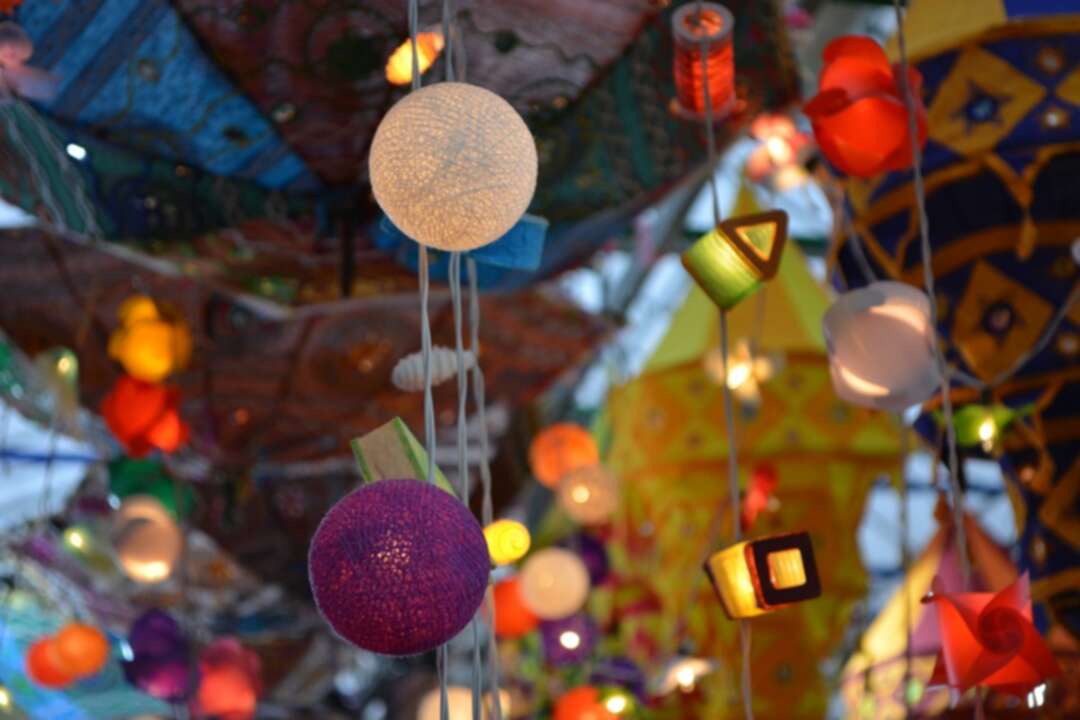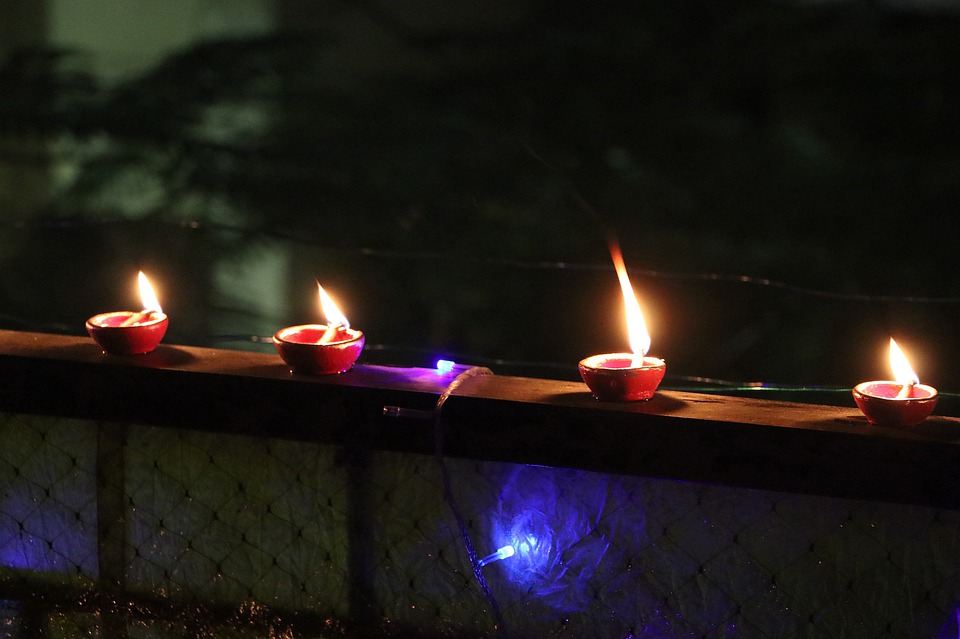-
India celebrates Hindu festival of Diwali amid concerns over COVID and pollution

The BBC reported, India has been lit up in a dazzling display of light and colour, as millions of people celebrate the Hindu festival of Diwali. But it comes amid concerns over the coronavirus pandemic and air pollution.
A time for feasts, prayers and fireworks, Diwali is one of the most important festivals in India. It is known as the festival of lights as people illuminate oil lamps or candles to symbolise the triumph of light over darkness and good over evil.
The symbolism seems particularly meaningful at a time when coronavirus continues to disrupt people's lives. Although cases have fallen considerably over the past month, India is still one of the world's worst-hit nations, officially recording more than 35 million cases and over 450,000 deaths.
For some, Diwali marks the beginning of a new year. It is also the social highpoint for Indians as people - buoyed by festive cheer - throw parties, meet friends and family and exchange gifts.

The exact dates of the festival change each year and are determined by the position of the moon, but it typically falls between October and November. This year, Diwali is being celebrated on Thursday.
Read more: Southern Indian state of Kerala holds climate talks parallel to COP26
Like last year, the coronavirus pandemic has brought many Diwali traditions to a halt. The government has pleaded with people to avoid large gatherings and stay away from crowded areas. And many have opted for low-key celebrations, with temples even streaming prayer sessions online to discourage gatherings.
But in the capital city of Delhi, massive crowds thronged markets ahead of the festival. Such actions, officials say, could cause another dangerous resurgence in infections that could overwhelm India's healthcare system.
At the peak of India's Covid crisis in April and May, India experienced scenes of chaos as hospitals were overwhelmed with patients amid a crippling shortage of oxygen, medicines and crucial equipment.
The public health crisis has largely subsided - the country has been recording about 10,000-12,000 daily cases, down from 400,000 in May. But experts have repeatedly cautioned against complacency, saying a third wave of infections is inevitable.
Read more: UK government says more than 40 countries pledge to shift away from coal
But Covid is not the only issue. The use of firecrackers during the celebrations worsens pollution levels every year.
This is particularly bad in Delhi, where air pollution rises to hazardous levels and a thick blanket of smog envelopes the city. The air quality further worsens in November and December as farmers in the neighbouring states of Punjab and Haryana burn crop stubble to clear their fields.
Studies around the world have linked air pollution to higher Covid-19 case numbers and deaths. A Harvard University study shows that an increase of only one microgram per cubic metre in PM 2.5 - dangerous tiny pollutants in the air - is associated with an 8% increase in the Covid-19 death rate.
Ahead of Diwali, several states ordered complete or partial bans on the use of firecrackers. In the past though, similar bans have often been flouted.
Source: BBC
You May Also Like
Popular Posts
Caricature
BENEFIT Sponsors BuildHer...
- April 23, 2025
BENEFIT, the Kingdom’s innovator and leading company in Fintech and electronic financial transactions service, has sponsored the BuildHer CityHack 2025 Hackathon, a two-day event spearheaded by the College of Engineering and Technology at the Royal University for Women (RUW).
Aimed at secondary school students, the event brought together a distinguished group of academic professionals and technology experts to mentor and inspire young participants.
More than 100 high school students from across the Kingdom of Bahrain took part in the hackathon, which featured an intensive programme of training workshops and hands-on sessions. These activities were tailored to enhance participants’ critical thinking, collaborative problem-solving, and team-building capabilities, while also encouraging the development of practical and sustainable solutions to contemporary challenges using modern technological tools.
BENEFIT’s Chief Executive Mr. Abdulwahed AlJanahi, commented: “Our support for this educational hackathon reflects our long-term strategic vision to nurture the talents of emerging national youth and empower the next generation of accomplished female leaders in technology. By fostering creativity and innovation, we aim to contribute meaningfully to Bahrain’s comprehensive development goals and align with the aspirations outlined in the Kingdom’s Vision 2030—an ambition in which BENEFIT plays a central role.”
Professor Riyadh Yousif Hamzah, President of the Royal University for Women, commented: “This initiative reflects our commitment to advancing women in STEM fields. We're cultivating a generation of creative, solution-driven female leaders who will drive national development. Our partnership with BENEFIT exemplifies the powerful synergy between academia and private sector in supporting educational innovation.”
Hanan Abdulla Hasan, Senior Manager, PR & Communication at BENEFIT, said: “We are honoured to collaborate with RUW in supporting this remarkable technology-focused event. It highlights our commitment to social responsibility, and our ongoing efforts to enhance the digital and innovation capabilities of young Bahraini women and foster their ability to harness technological tools in the service of a smarter, more sustainable future.”
For his part, Dr. Humam ElAgha, Acting Dean of the College of Engineering and Technology at the University, said: “BuildHer CityHack 2025 embodies our hands-on approach to education. By tackling real-world problems through creative thinking and sustainable solutions, we're preparing women to thrive in the knowledge economy – a cornerstone of the University's vision.”
opinion
Report
ads
Newsletter
Subscribe to our mailing list to get the new updates!






















